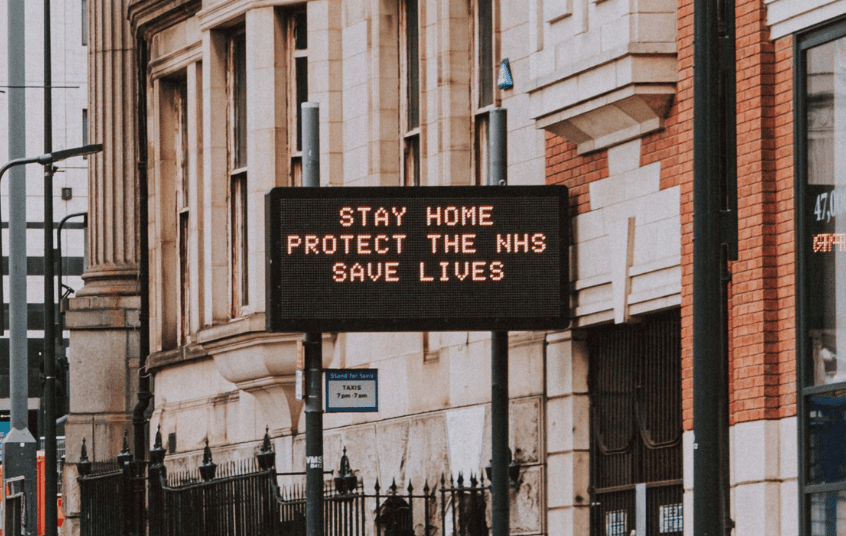The House of Commons Health and Social Care Committee has published a joint report with the Science and Technology Committee entitled ‘Coronavirus: Lessons learned to date’. Here’s a look at what the report is about, and its key findings…
What is the report?
The report is a 147-page document from the Health and Social Care Committee and the Science and Technology Committee.
The two committees currently have members who are MPs from the Conservative Party, Labour Party and Scottish National Party. The report primarily focuses on responses to the pandemic in England and comes as part of a joint inquiry, Coronavirus: lessons learnt, that was launched by the two committees in October 2020 to “consider several key issues that emerged during the first wave of the pandemic and identify what lessons need to be learnt”.
The report is designed to provide “an early assessment of the key decisions, structures and underlying factors which contributed to the extent of the pandemic’s impact in the UK” and is not intended to “apportion blame”.
How was the report formed?
The inquiry for which the report is for involved 11 oral evidence sessions where MPs heard from individuals about the pandemic, such as the Chief Scientific Adviser Sir Patrick Vallance, and the then Health Secretary Matt Hancock.
As well as oral evidence sessions, the committees gathered evidence in writing.
The structure of the report sees it explore the UK’s pandemic preparedness, lockdowns, testing and contact tracing, social care, at-risk communities, vaccines and overall conclusions.
What are some of the key points?
The report is just under 150 pages long and too long to include in its entirety here, but the full report can be accessed on Parliament’s website. Here’s a look at some of the key points;
- MPs say in the report that the UK’s pandemic planning was “too narrowly and inflexibly based on a flu model which failed to learn the lessons from SARS, MERS and Ebola”. The report suggests that there were issues with the country’s preparedness and that the carrying out of plans performed less well than other countries.
- The report highlights “major deficiencies in the machinery of Government”, noting that there was a lack of structures and protocols for the sharing of vital information at the start of the crisis.
- MPs say that a “full lockdown was inevitable and should have come sooner”, given the absence of other strategies to tackle the virus. Notably, the report reads “decisions on lockdowns and social distancing during the early weeks of the pandemic – and the advice that led to them – rank as one of the most important public health failures the United Kingdom has ever experienced.”
- The report claims that both the Government and the NHS “failed adequately to recognise the significant risks to the social care sector” when the pandemic began.
- MPs note that the disproportionately high mortality rates for people with learning disabilities and autistic people during the pandemic have highlighted health inequalities faced by these groups.
- The report recognises that in some important areas, the UK’s performance in the pandemic “outperformed other countries”, and in particular, MPs praised the UK’s vaccination programme as “one of the most effective initiatives in the history of UK science and public administration and which was delivered by the NHS”.
What reaction has there been to the report?
The Government’s Cabinet Office Minister Stephen Barclay said that the government took responsibility for everything that happened during the pandemic, and said that scientific advice had been followed. During media interviews following the release of the report, Barclay refused over ten times to say sorry for pandemic mistakes – a story that has made multiple front pages.
Labour’s Shadow Health and Social Care Secretary Jonathan Ashworth described the report as “a damning report into monumental errors”, claiming that ministers “were warned but responded with complacency”. Mr Ashworth, called for a public inquiry now “so mistakes of such tragic magnitude never repeated again”.
Some have criticised the report, saying it barely mentions the bereaved families.
A spokesperson for the COVID-19 Bereaved Families for Justice group, Hannah Brady said, “The report it’s produced is laughable, and more interested in political arguments… than it is in the experiences of those who tragically lost parents, partners or children to COVID-19.” She added, “This is an attempt to ignore and gaslight bereaved families, who will see it as a slap in the face.”
Critics of the report have said it makes it more important that there is a public, judge-led inquiry into the handling of the pandemic.
The Care Workers’ Charity said that they were “unsurprised” by the findings of the report and said they are “glad that the unique challenges faced by the social care sector are getting the publicity they deserve”. In a statement, the charity raised concerns over underfunding in the care sector and said “the pandemic served to once again highlight the discrepancy between the treatment and regard of the health and social care sectors”.
What happens next?
Cabinet Office Minister Stephen Barclay has said the Government will consider the report, and more reaction is likely to follow.
The UK Government has committed to a public inquiry about its response to the pandemic, though this is not expected to take place until next year, despite many calling for it to take place sooner.



